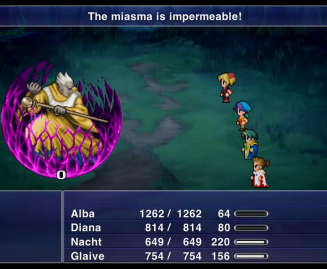Hmm, what an interesting post…
Hmm, what an interesting post…
Originally shared by Josh Roby
So I had complicated feels about #Metatopia2015. You probably don’t want to read this. 😉
Because in order to explain my complicated feels, I have to go back a few steps. I’ve been making RPGs for a little more than a decade, and that endeavor cannot really be called a success. I’ve never found or gathered an audience, I don’t have any True Fans, and I’ve never had any real breakout hit. While there have been a number of bright moments over that decade, on the whole my “career” in gaming has been a steady stream of frustration and disappointment.
I’ve come to the conclusion that writing RPGs is just not something that works for me, for whatever reasons, and the only sane thing to do is stop. So I’ve spent the last year-and-change clearing my plate of pending projects to free up my mental resources for writing fiction. I’m really excited about the change! I enjoy writing fiction a lot more than writing games, and honestly I’m a little annoyed at myself for spending so much time on other stuff. I should have been writing stories all this time!
Shortly after I came to this realization, though, my wife and I started considering the possibility of moving to Nashville. One of the benefits of the move would be easier access to east coast and midwest conventions, which I hadn’t been able to attend when we lived in California. And I’ve always wanted to attend Metatopia.
Which is how I, striving to become a former game designer, ended up at a convention for game designers. Which was a little awkward.
I have ten years of weekly playtesting under my belt. Our playtesting circle has played, stress-tested, disassembled, and rebuilt tons and tons of games. So going in, I hoped that I could offer that and be an asset to the designers who were bringing their work to the con. The reality, however, was often me sitting at a table thinking, “What the fuck do I know, I couldn’t make game publishing work for twelve years, why would I have any insight on what makes a successful game?” Sometimes I was able to push through that; other times I was not. It was uncomfortable every time, regardless.
Having concluded that you have failed to find an audience for your games, it is also somewhat difficult socializing with the game designers who have. This is compounded when you don’t have any exciting new projects to talk to them about. I spent a lot of time tamping down my own envy at others’ successes so that I could listen to their plans and products with proper enthusiasm. Because I am excited for most of the upcoming games and designers I talked about, don’t get me wrong. It’s just the constant filtering of my emotional reponses was draining.
The indie games community does a fabulous job of welcoming and supporting new designers, especially at Metatopia. Everyone is very supportive of your desire to design and publish your game. There is, however, an elephant in the room that nobody talks about, that the time and attention of gamers is finite and competition for mindshare is fierce. The typical response seems to be to throw our hands in the air and say, “the market, right? who knows.” But while everyone would love to talk to you about your game in development, no one will ever ask you how much play your published game is getting. Gatherings like Metatopia often become events where the winners mix with the losers of that competition for folks’ game time and table space, and while everyone is very aware of those status distinctions, no one speaks about it. This can be maddening, especially when you’re already low on spoons, as I was for most of the weekend.
The playtests that I participated in ranged widely in how complete their designs were. Some were all but finished save for typos; others still needed significant work. Mostly this was as expected, but a few times I was absolutely gobsmacked by how premature the playtesting was. In all of these cases, the holes in the games were fundamental problems that I considered essentially solved by the indie games community years ago. I played games whose designers did not know what their games were about, what players would do, or even why they wanted to design such a game in the first place. This didn’t exhaust me so much as depress me. It makes me think that the community does not learn, which seems like a monumental waste of everyone’s time retreading the same questions over and over again.
Not all was dark and dreary, of course. I was able to meet up with a ton of old friends and even got to sit down and talk with most of them. I met some new ones, too. I was welcomed into the IGYCRHB mixer, which was incredibly heartwarming. And I got to play some truly exciting new games in development. I enjoyed my weekend despite the difficulties the con presented (and alcohol helped me ignore the worst instances), but it was a close thing. Technically, I think it was a mistake for me to attend–I did not belong there–but I’m still glad that I did.


